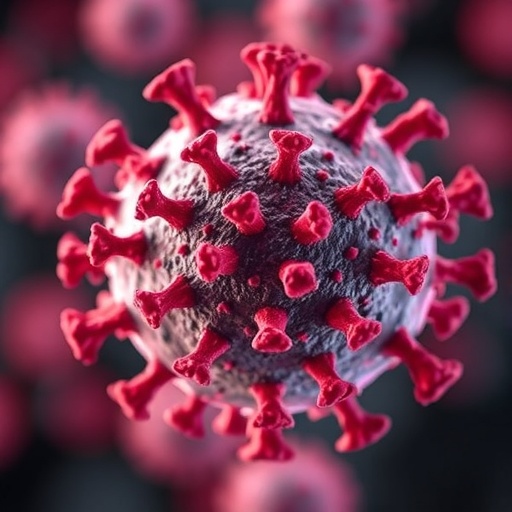Artificial intelligence (AI) is revolutionizing various fields, and one intriguing application is in the creation of monoclonal antibodies that combat viral infections. Researchers are increasingly leveraging advanced computational techniques to design and develop therapeutics that have a profound impact on public health. A remarkable study led by scientists at Vanderbilt University Medical Center provides a glimpse into this promising future, showcasing how AI and protein language models can expedite the design process of life-saving antibodies against notorious viral threats.
The study, recently published in the esteemed journal “Cell,” presents an innovative protein language model named MAGE, which stands for Monoclonal Antibody Generator. This cutting-edge tool utilizes machine learning algorithms, similar in concept to large language models like ChatGPT, but tailored specifically for understanding and generating protein sequences. By training MAGE on an extensive database of known antibodies and their interactions with viral proteins, researchers demonstrated its ability to design antibodies that can target specific viral antigens.
One of the focal points of the research was the respiratory syncytial virus (RSV), known for causing severe respiratory illness in infants and the elderly. The researchers aimed to develop monoclonal antibodies capable of neutralizing RSV and potentially other emerging viral threats such as avian influenza. This endeavor highlights the escalating urgency for new therapeutic strategies, particularly in the face of rapidly evolving viral pathogens.
The process begins with characterizing the surface proteins — antigens — of viruses which are crucial for their entry and infection of host cells. Traditional methods of antibody design often rely on existing samples or prior knowledge, limiting their ability to respond swiftly to new threats. However, the MAGE model departs from these constraints. By generating antibodies directly from its training data, MAGE can formulate entirely new sequences, thereby offering a more efficient pathway for rapid response to viral outbreaks.
The implications of MAGE’s capabilities are vast. It signifies a paradigm shift in antibody development where researchers can predictively engineer antibodies without needing prior templates. This unlocks possibilities for addressing not only viral infections but also a spectrum of diseases, such as cancer and autoimmune disorders. The adaptability of this technology could usher in a new era of precision medicine, where tailored biological therapies can be quickly designed and deployed against specific disease mechanisms.
In this study, the researchers illustrate how they successfully used MAGE to generate antibodies that recognized unique antigen sequences of the H5N1 influenza virus, providing a proof of concept. The model’s unique methodology allows it to extrapolate from known data and make intelligent predictions about unknown strains, which is a monumental leap forward from traditional antibody discovery methods. By sidestepping the requirement for blood samples or antigen proteins of the novel virus, they could efficiently design potential therapeutics in a fraction of the time usually required.
This achievement draws attention to the transformative potential of AI in biomedicine. Ivelin Georgiev, PhD, the principal investigator and a leading authority in computational approaches for disease treatment, stated that this research serves as a significant milestone towards the broader objective of utilizing computational tools to craft and translate biologically active compounds into clinical settings. The efficiency of such AI-driven methodologies holds the promise of not just speeding up therapeutic development, but also enhancing the overall effectiveness of patient care.
The research consortium included experts from diverse institutions across the United States, Australia, and Sweden, highlighting the collaborative effort driving innovation in this field. The successful collaboration between computation and experimental biology underscores the necessity of a multidisciplinary approach in tackling complex health issues. Perry Wasdin, PhD, the leading data scientist involved, emphasizes the integral role of this collaborative framework in achieving their groundbreaking results.
While the study’s immediate results are compelling, the broader ambitions extend to a future where diseases that currently lack effective treatments can be tackled systematically. The real-time ability to custom-make antibodies means that researchers can rapidly pivot to face new challenges as they emerge. This approach could dramatically alter public health protocols, potentially saving countless lives through the timely administration of effective treatments.
Funding for this impactful work came from the Advanced Research Projects Agency for Health (ARPA-H) and the National Institutes of Health, which aims to foster transformative ideas and approaches to health challenges. The research underscores the importance of sustained investment in AI technologies to further propel the capabilities of medical science. As this research progresses, it paves the way for a broadened understanding of bioinformatics, critical in guiding future healthcare innovations.
In conclusion, the integration of AI and protein language models like MAGE represents a transformative step in the field of immunology. As researchers continue to unravel the complexities of viral interactions and immune responses, the tools devised from these studies could very well reshape the landscape of therapeutic development. The prospects of using AI to design novel biologics not only highlight the technological advancements being made but also reflect a crucial shift in how we approach health crises, suggesting a future where the rapid deployment of effective medical solutions is within our grasp.
Subject of Research: AI-driven monoclonal antibody design against viral infections
Article Title: Generation of antigen-specific paired-chain antibodies using large language models
News Publication Date: 4-Nov-2025
Web References: https://doi.org/10.1016/j.cell.2025.10.006
References: Wasdin et al., (2025). Generation of antigen-specific paired-chain antibodies using large language models, Cell.
Image Credits: Credit: Cell (2025), © 2025 The Authors. Published by Elsevier Inc.




